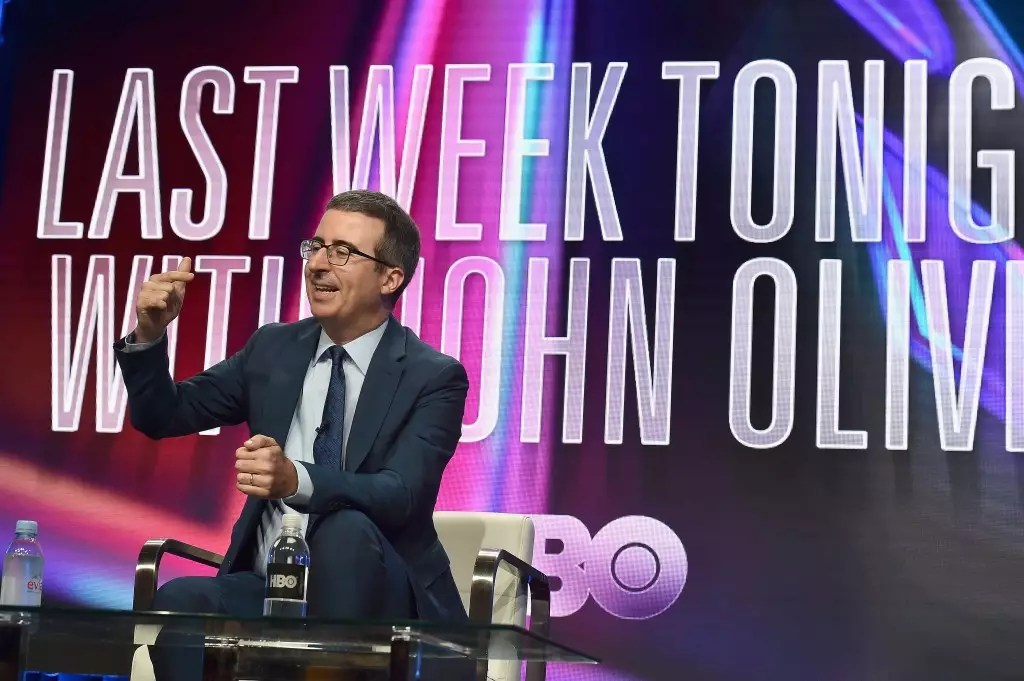Mr. John Oliver, the sharp-witted host of HBO’s *Last Week Tonight*, has frequently used his platform to tackle pressing social issues, often blending humor with serious commentary. However, the sharp edges of satire can sometimes lead to legal repercussions, as is currently the case with a defamation lawsuit filed against him by Dr. Brian Morley, a former medical director for a health insurance corporation. The crux of this legal dispute hinges on remarks Oliver made during an April 2024 episode focused on Medicaid fraud, particularly in the context of healthcare management and ethical practices.
The situation exemplifies the fine line that television hosts must navigate when delivering critiques of public figures or issues. In an age where content is rapidly consumed and dissected, a careless quip can lead to a legal landmine. That is what may be unfolding with this lawsuit, which accuses Oliver and his producers of willfully misconstruing Dr. Morley’s comments, presenting them in a light that could severely damage his reputation.
The Allegations and Their Implications
The lawsuit detailed claims that Oliver, along with his production team, deliberately mischaracterized Dr. Morley’s position, alleging that he stated it was acceptable for individuals to remain unclean for extended periods. The actual context, they argue, was pulled from a more nuanced discussion during a lengthy 2017 hearing. Dr. Morley contends the editing process of the episode stripped his comments of their context, effectively misleading the audience. This misrepresentation is central to the defamation claim.
The legal filings highlight how sensationalized television can shape public perceptions. With Oliver’s expletive-laden reactions being broadcasted to over a million viewers, the potential for reputational harm is tangible. The complaint represents a growing concern in the entertainment industry about how the lines between journalism, commentary, and entertainment are increasingly blurred.
A Closer Look at the First Amendment Considerations
One of the most vital aspects of this case will involve First Amendment protections. Should the defendants cite their right to free speech as a defense, they may face a challenging road ahead. While satire and commentary are protected under the First Amendment, the allegations against Oliver suggest he and his team knew they were distorting Morley’s comments—a crucial point that could potentially undermine their defenses.
The context provided by Dr. Morley’s original comments is necessary to understand the fullness of his statements. If the jury finds that Oliver and his team knowingly misrepresented these statements, the case could set a significant precedent regarding how far satire can go without incurring liability for defamation.
The Stakes for Oliver and His Production Team
While John Oliver has successfully fended off various lawsuits since *Last Week Tonight* debuted in 2014, this particular case carries unique stakes. The potential financial repercussions loom large; Dr. Morley’s complaint indicates he seeks damages exceeding $75,000, an amount that could escalate significantly depending on the court’s findings regarding reputational harm.
In addition to financial implications, the lawsuit poses a reputational risk for Oliver. Known for tackling contentious topics with humor and gravitas, Oliver’s brand relies heavily on his credibility and integrity. Should the lawsuit reveal a reckless disregard for the truth in crafting segments, it could challenge his standing as a reliable commentator on crucial societal issues.
Public Reaction and the Power of Media Discourse
The public reaction to the lawsuit is also noteworthy. Fans of the show may be divided; some could align with Oliver, viewing him as a champion of the underdog, while others might empathize with Dr. Morley, understanding the profound implications of misrepresentation in the media. This division showcases the broader impact of media figures on public discourse and opinion, pointing to the responsibility that comes with wielding such influence.
The interplay between entertainment and information in today’s media landscape complicates these dynamics. As viewers, we often assume a cavalier approach to the accuracy of information consumed in comedic formats, yet the potential consequences for those involved can be serious and long-lasting.
The Future of Satire and Accountability
As the lawsuit progresses, it raises vital questions about the evolution of satire in a world increasingly scrutinized by both audiences and the judicial system. Can humor and critique coexist without the specter of litigation? Should creators tighten their editorial processes to mitigate legal risks, or is this an overreach that stifles free expression?
In John Oliver’s case, the outcome may not only determine the course of the ongoing legal battle but could also serve as a cautionary tale for future satirical endeavors. The delicate choreography of humor, criticism, and accountability remains a defining feature of modern media, with each high-profile case offering lessons for both artists and audiences alike.


Leave a Reply